
Road Warrior Pets: Tips for Trucking with 4-Legged Friends
August 26th is National Dog Day. To celebrate your pup, we’ve got some recommendations for making the trip the best it can be for you
In our previous article, we discussed the features and benefits of Genuine OEM Remanufactured Carrier assemblies from REMACK®. To further illustrate the REMACK® difference, we are going to take a look at what the competition is doing and provide several examples of why REMACK® should be your choice when it comes to your truck.
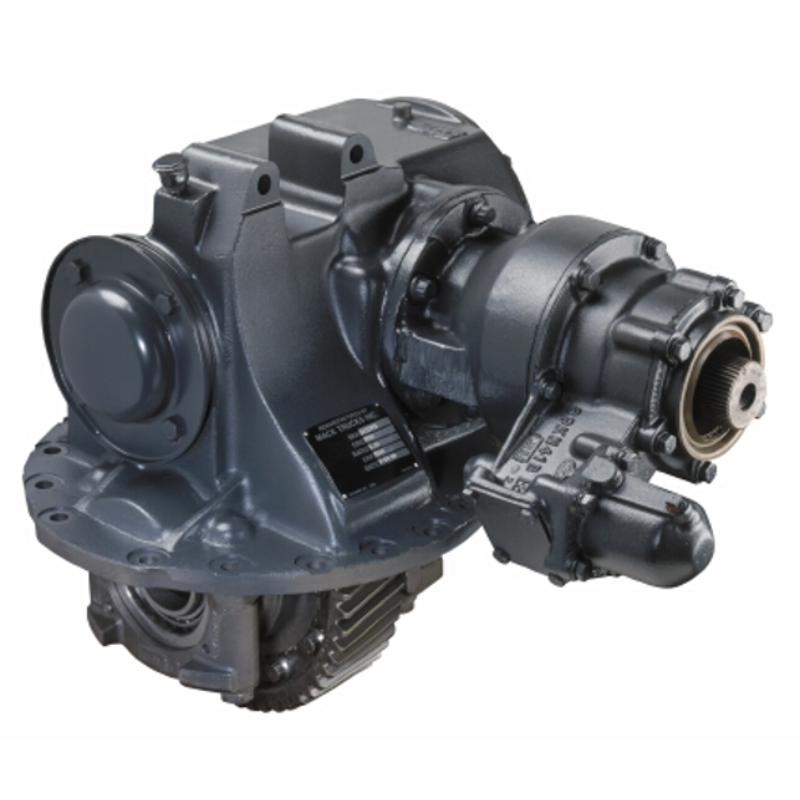
REMACK® Carrier Assembly
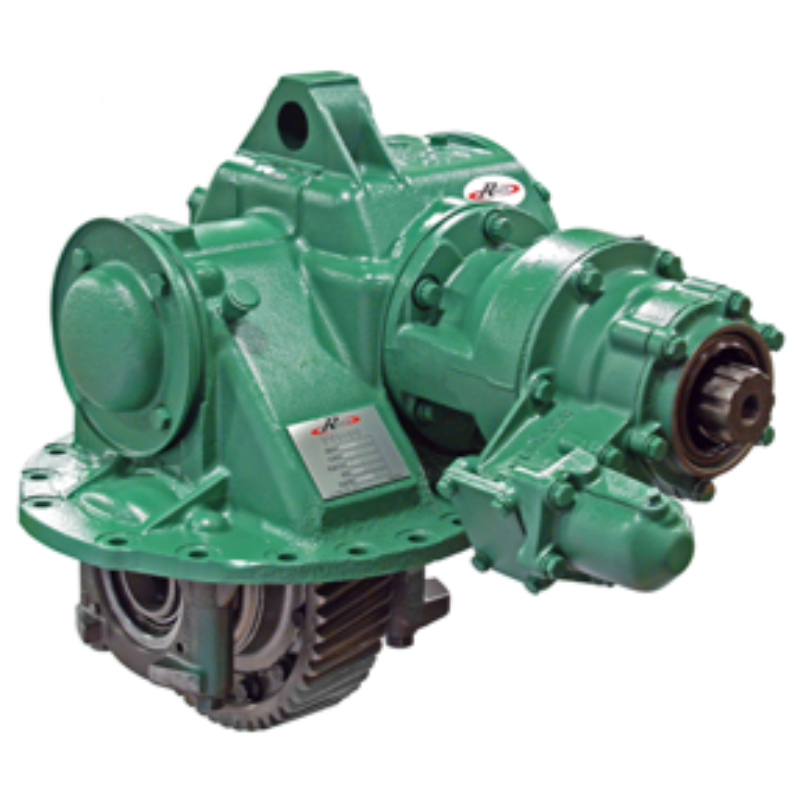
Rebuilder Series™ Carrier
Assembly
In this article, we are taking a look at a Mack Carrier assembly that was “remanufactured” by a local competitor. You will see why only the OEM can Remanufacture their components and that locally re-built units marketed and sold as remanufactured do not meet the quality and reliability needed to keep your truck on the road. Let’s take a look.
One of the first items that you will notice is how the local rebuilder shipped the product. This carrier is banded to a skid, with no protective coverings. It is quite possible that it could easily get damaged in transit to the customer installing the unit, and that foreign material could contaminate vital components.
REMACK® Genuine OEM Remanufactured carrier assemblies are shipped from the Middletown, PA facility on a metal stand, wrapped in plastic, ensuring that the carrier is in the same condition when it arrives to the customer as when it left their facility.
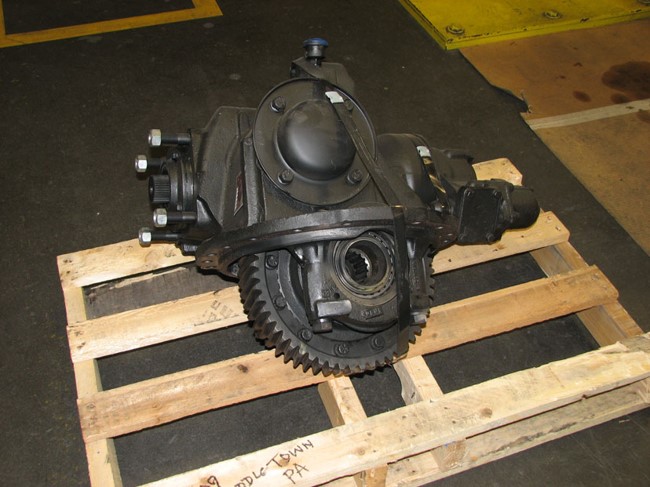
On the identification plate, only the Job number is provided for the rebuilt carrier. The Model, Ratio and number of splines is writted on the aseembly in grease pen. Over time this vital information will be lost to time and the elements making future identification for replacement components difficult.
REMACK® Genuine OEM Remanufactured carrier assemblies have all pertinent identification information stamped on to the badge from the facility, ensuring that this information is not lost.
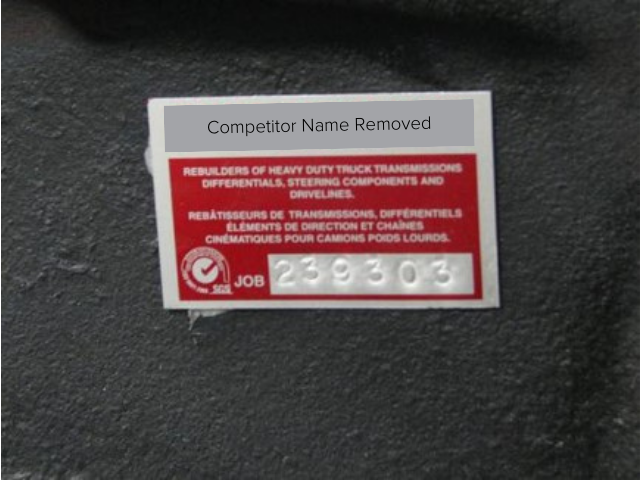
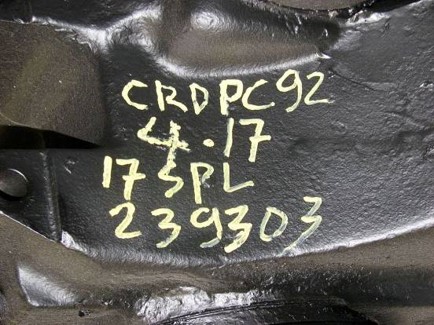
The local rebuilder did not include a side cover during shipment. Internal components could be contaminated during shipping.
REMACK® Genuine OEM Remanufactured carrier assemblies come with a side cover, and are shipped on a metal stand, wrapped in plastic to ensure the highest quality.
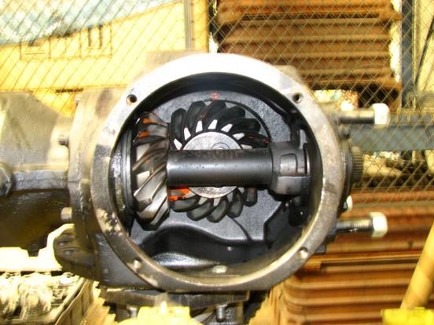
The locally rebuilt carrier would not allow the shaft to rotate in opposite directions without air applied to the cylinder. This may result in premature wear to the power divider wedges and cams.
REMACK® Genuine OEM Remanufactured carrier assemblies are completely broken down and remanufactured to OEM specifications ensuring proper operation.
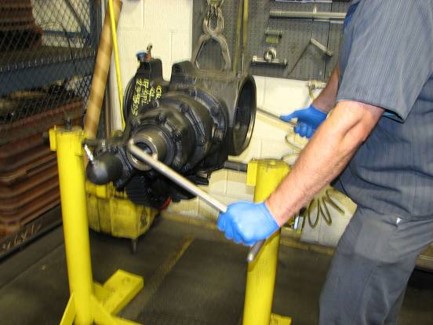
The piston is nicked and may cause binding. The felt strip is covered with rust/dirt and may not allow for proper cylinder wall lubrication. Additionally, the cylinder wall is also rusty. The rebuilder performed a localized repair to the unit and did not inspect critical components.
REMACK® Genuine OEM Remanufactured carrier assemblies are completely broken down and remanufactured to OEM specifications ensuring proper operation. REMACK® does not do localized repair. It is a complete remanufacturing process.
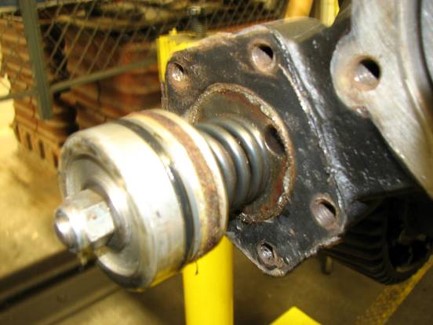
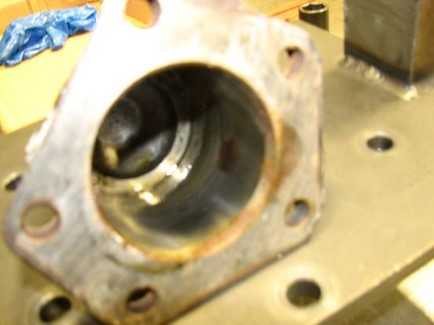
Here we can see that the shift rail is nicked, scarred, and not polished. This may cause the lockout to not work properly due to the rail binding in the bores.
REMACK® Genuine OEM Remanufactured carrier assemblies must meet OEM specifications for the reman process. As such any components that fail inspection will be replaced with Genuine Mack Parts or brought back to spec.
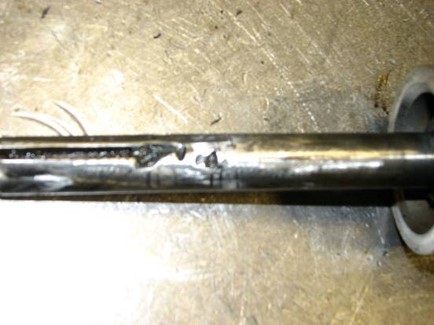
The inner cam was replaced by a non-genuine part which may not meet specifications.
REMACK® Genuine OEM Remanufactured carrier assemblies contain 100% OEM Genuine parts. This is important because any product improvements made after production are also updated in the remanufacturing process.
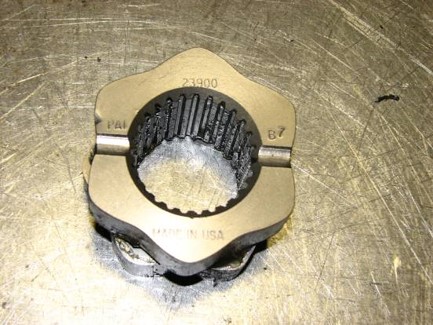
Gear marking compound should be used to check for proper contact of the bull gear and spur shaft teeth. Failure to do so may lead to noise and/or premature wear and reduction of service life.
REMACK® Genuine OEM Remanufactured carrier assemblies are remanufactured by OEM-trained technicians backed by quality audits.
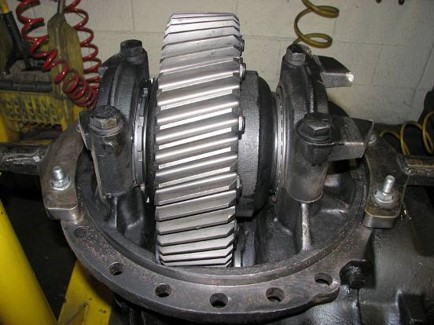
Here we see that the locking pin is rubbing against the differential housing. This will generate metal in the carrier lube and could cause possible contamination of the bearing as well as possible damage tot he oil seals.
REMACK® Genuine OEM Remanufactured carrier assemblies are remanufactured by OEM-trained technicians backed by quality audits.
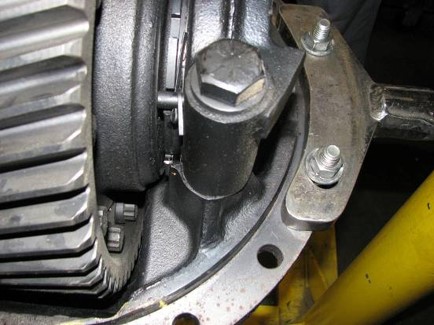
The oil feed hole orientation is not in alignment with the oil feed trough. This will restrict the flow of lubrication and cause possible premature failure of the power divider and input shaft bearings.
REMACK® Genuine OEM Remanufactured carrier assemblies are remanufactured by OEM-trained technicians backed by quality audits.
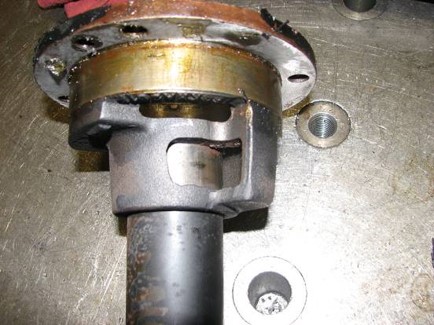
All four main caps were under torque specifications (113, 79, 122 & 141 Ft Lbs.). The Mack specification is 295 Ft Lbs. +/- 10%. Clearly, no torque equipment was used and there is a possibility of bolts backing out which would cause improper retention of the bull gear bearings and races.
All torque equipment, gauges, and tooling are on a quality control schedule to ensure that Genuine REMACK® remanufactured products meet factory specifications.
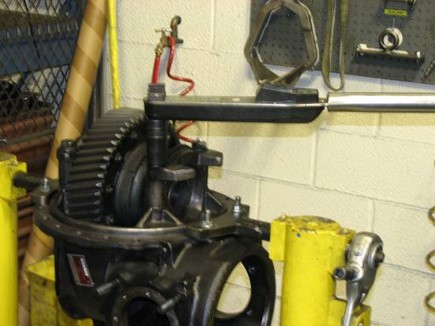
The main housing is cracked. This may cause oil to leak and reduce the service life of the unit.
All REMACK® in-bound cores are broken down and sand blasted to the bare cast iron. A rigorous inspection process performed prior to the remanufacturing process ensures that any cracks or damage is repaired back to OEM specifications.
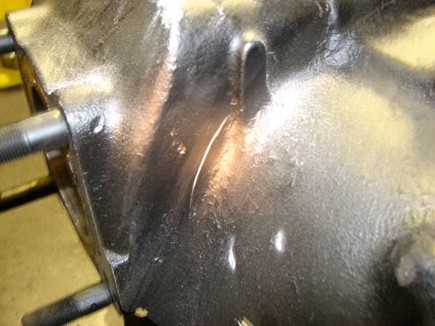
As you can see, there is a big difference between a locally rebuilt unit and a Genuine OEM Remanufactured! Without the proper inspection, genuine parts, quality audits, and factory-trained technicians, why risk additional downtime by using a local rebuilder? Bergey’s Truck Centers is a Mack Trucks Inc. authorized dealer providing genuine OEM remanufactured components backed by a nationwide warranty.

August 26th is National Dog Day. To celebrate your pup, we’ve got some recommendations for making the trip the best it can be for you

The first fully electric Class 8 refuse truck in the State of Delaware Proudly displays the copper-colored Mack bulldog. Evergreen Waste, based out of Hockessin,
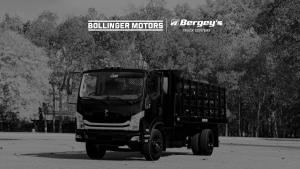
Bergey’s has Finalized the Dealership Agreement with Bollinger Motors For Sales and Service in the Mid-Atlantic Region. On December 11, 2024, Bollinger Motors, Inc named

Managing the 2027 EPA Diesel Emissions Regulations and Expected Pre-buy Running diesel trucks in your fleet means you should be aware of the coming 2027